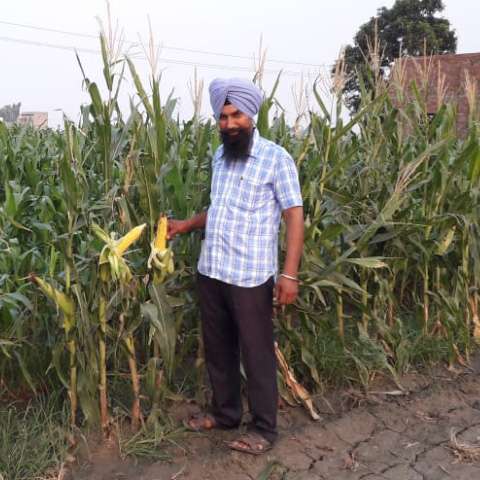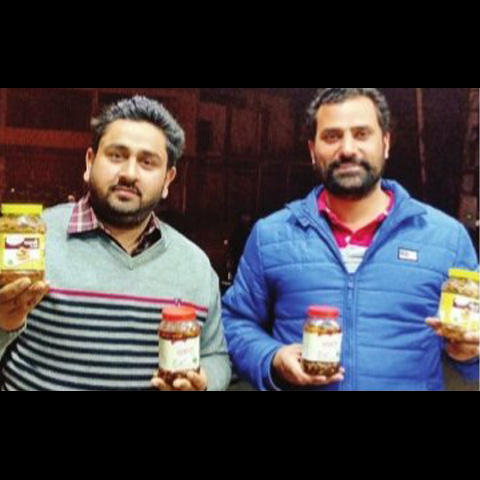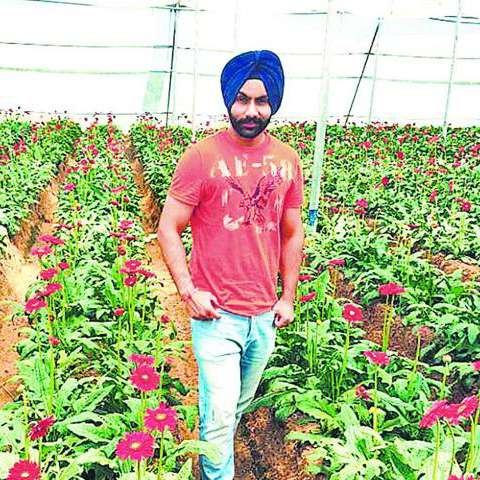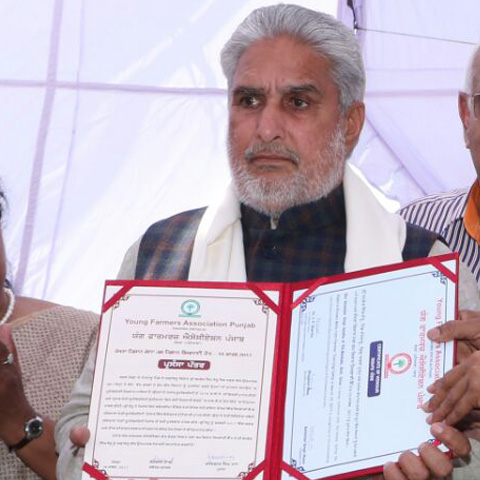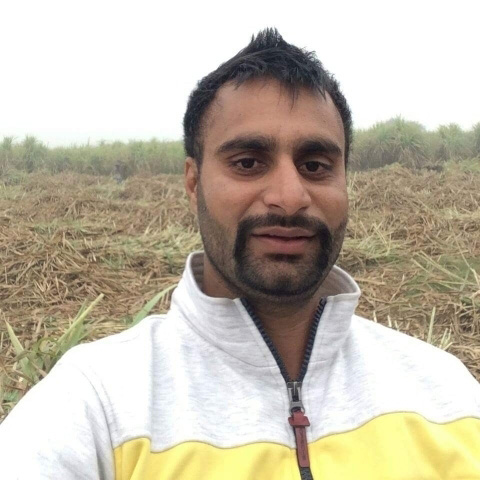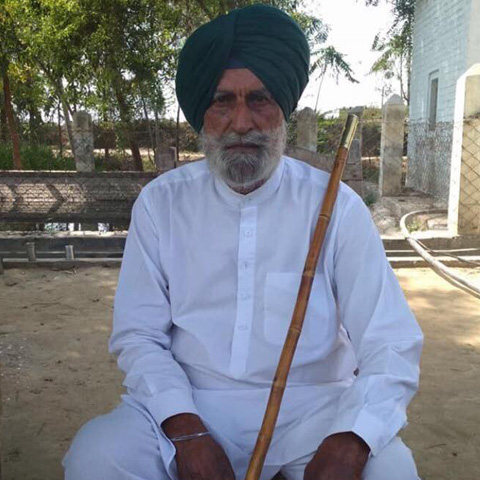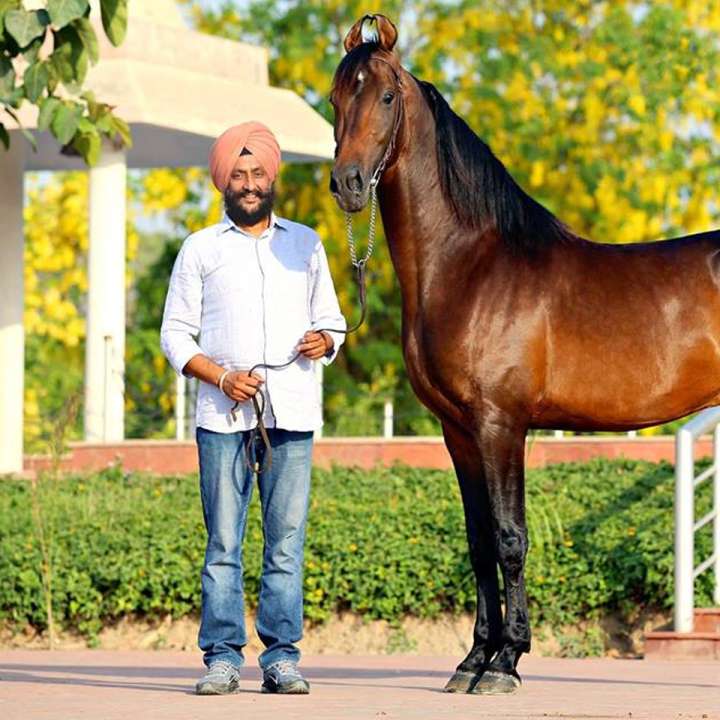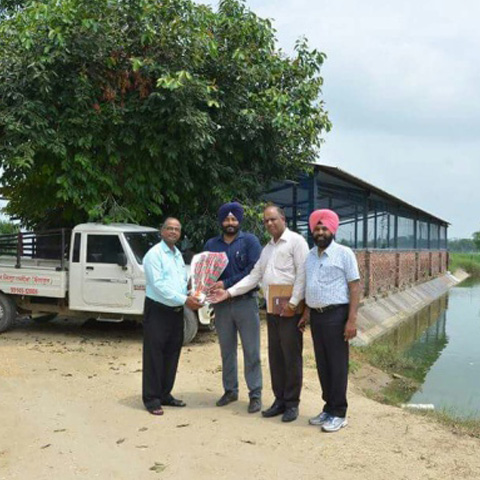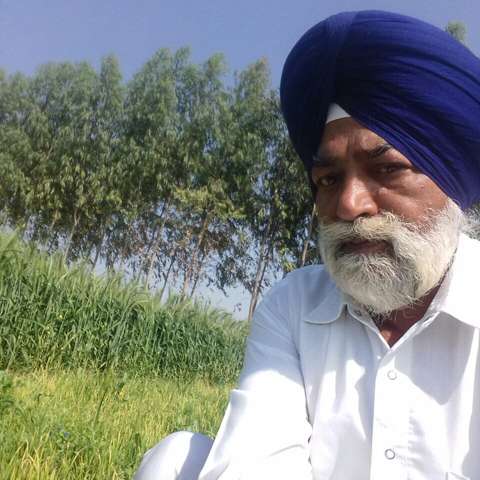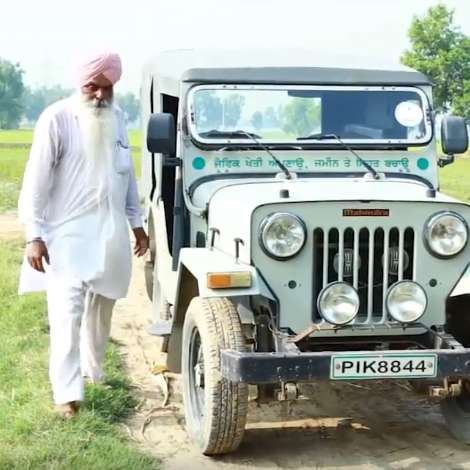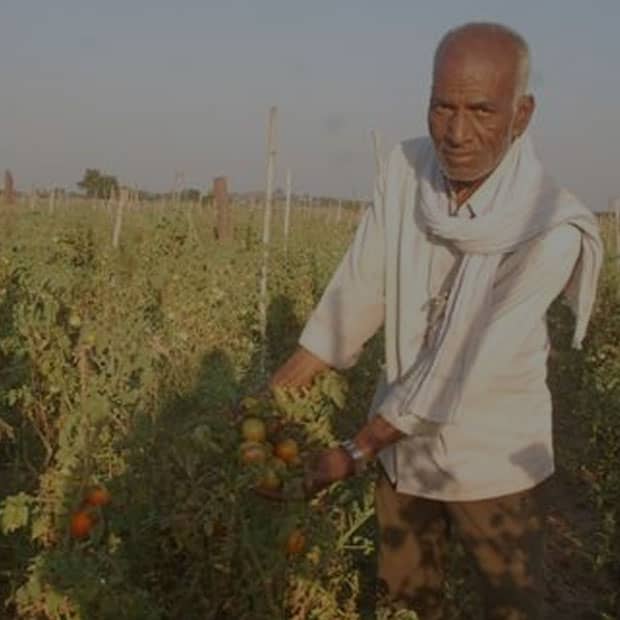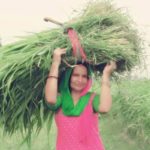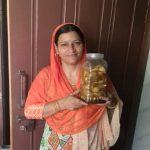Jaswant Singh Sidhu Sizing up Organic Farming with Floriculture
It was Jaswant Singh’s grandfather who passed on the interest of floriculture to him and today Jaswant Singh is a progressive farmer who is practicing flower farming along with organic methods. The journey of Jaswant in the field of farming started at a very young age when his grandfather used to ask for his help while gardening. Slowly the interest of Mr. Jaswant Singh also turned towards flower farming. But for commercial purpose, his father was cultivating Paddy and Wheat like his ancestors, and due to less land and weak economic condition of the family, his father was least interested in taking any risk and adopting any new thing.
Besides knowing the family conditions, Jaswant Singh enrolled himself in the horticulture training organized by PAU, just after completing his 12th studies. Although he took the training of horticulture, his father never allowed him to practice floriculture on their land due to the fear of crop failure and loss. For some time, Jaswant Singh also continued with wheat and paddy cultivation, but soon he convinced his father for flower farming (Marigold, Chrysanthemum, Gladiolus, Rose, & Local Rose) and in 1998 he started it on a small patch of land (2 Marla ≃ 25.2929 square metres).
“When my father agreed, at that time I was totally steadfast about floriculture and decided to expand it with the time and reap good profit from it. Although there was no good market nearby to sell the flowers still I was determined and didn’t want to step back.”
When the time of harvesting came, at that time Jaswant Singh visited the houses in his nearby villages in which marriage ceremonies or any celebrations were going to be held, and took the contract of decorating their houses and car with the flowers. In this way, he earned a profit of Rs. 8000 to 9,000 over his income. Seeing the progress of Jaswant, his father and other family members were very happy and this boosted up the courage of Jaswant Singh. Gradually he expanded flower farming in 2 ½ Kanal and presently it’s in 3 acres. Time-to-time, Jaswant bring some new flowers and plants from the nursery, to add variety to his farm. Now, he has also started preparing nursery of flowers, from which he is earning a good income and even today also he manages the marketing part on my own.
Well Jaswant Singh’s hard work did not go in vain, for the tremendous efforts he has been awarded Surjit Singh Dhillon State Award (2014)
In future, Jaswant Singh is planning to expand floriculture and also venture in the field of poly-house farming by taking land on lease.

